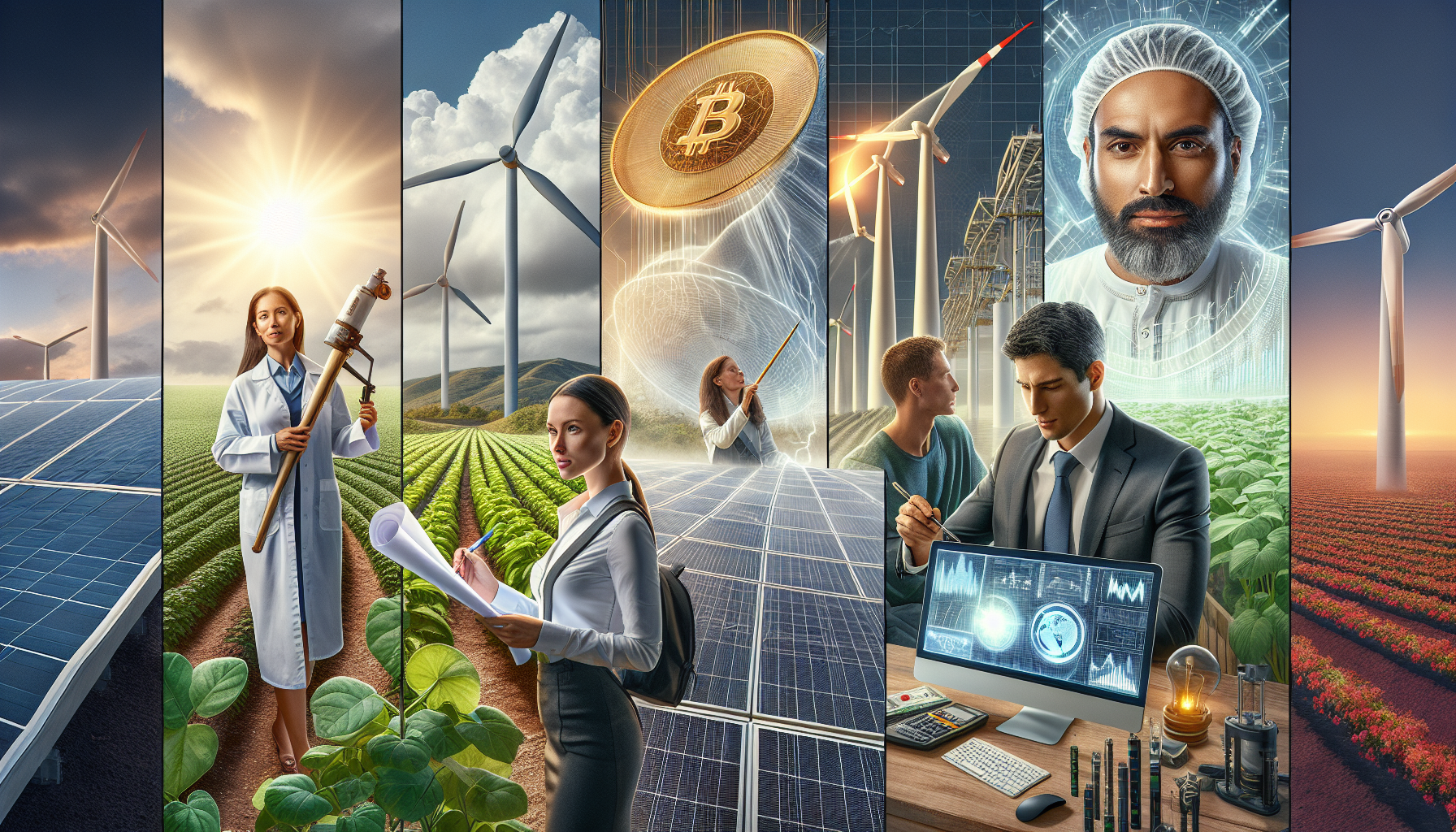Advertisements
Climate change has impacted not only the environment but also the global economy. Environmental instability has generated a series of consequences for the finances of several countries, affecting sectors such as agriculture, tourism, insurance and even the financial market. Extreme weather events, such as hurricanes, droughts and floods, have caused billions in losses and put the economic sustainability of many nations at risk.
The increasing frequency and intensity of climate phenomena have led governments and companies to rethink their strategies and policies for mitigating environmental impacts. Investments in renewable energy, adaptation measures and actions to reduce greenhouse gas emissions have become essential to ensure economic resilience in the face of climate change. In addition, pressure from civil society and consumers for more sustainable practices has driven the adoption of stricter environmental policies in several countries.
The rising costs associated with extreme weather events and the loss of productivity in key sectors of the economy have highlighted the urgency of adopting effective measures to combat climate change. The Paris Agreement and other international initiatives have sought to promote global cooperation to reduce greenhouse gas emissions and limit global warming to safe levels. However, the challenge of reconciling economic growth with environmental sustainability remains a priority for governments and companies around the world.
Given this scenario, it is essential to understand the economic impact of climate change and seek innovative solutions to minimize losses and ensure global financial stability. The transition to a low-carbon economy, the promotion of the green economy and the development of sustainable technologies are essential measures to face the challenges posed by climate change and ensure a more prosperous and balanced future for future generations.
Economic impact of climate change: how environmental instability is affecting global finances
Climate change has had a significant impact on the global economy, affecting many sectors and countries around the world. Environmental instability resulting from rising temperatures, melting polar ice caps, extreme weather events and other factors has generated negative economic consequences, ranging from direct losses in sectors such as agriculture and tourism, to costs related to adapting to and mitigating the effects of climate change.
Advertisements
Impacted sectors
Agriculture
Agriculture is one of the sectors most vulnerable to climate change, as changes in weather conditions directly affect food production. Droughts, floods, heat waves and pests can reduce crop productivity, resulting in financial losses for farmers and higher food prices for consumers.
Tourism
The tourism sector is also affected by climate change, as tourist destinations can be impacted by extreme weather events such as hurricanes, floods and wildfires. In addition, rising temperatures can make certain regions less attractive to tourists, impacting the local economy.
- Direct losses in agriculture
- Impact on the tourism sector due to extreme weather events
- Rising food prices due to reduced agricultural production
- Fewer tourist attractions due to rising temperatures

The intensification of climate change has led to increased costs related to recovery and reconstruction after natural disasters. Governments and businesses are being forced to invest significantly in resilient infrastructure to mitigate the damage caused by extreme weather events. These investments, while necessary, can divert resources from other crucial areas of the economy. In addition, climate volatility affects investor confidence, resulting in greater uncertainty in financial markets. The insurance sector also faces significant challenges, with an increase in insurance claims related to natural disasters, increasing policy costs and reducing insurers’ profitability. The exposure of financial institutions to climate risks is a growing topic of concern, requiring a reassessment of risk management strategies.
Conclusion
In short, climate change has a significant economic impact on many sectors and countries around the world. Environmental instability resulting from rising temperatures and other factors is having negative consequences for the global economy. Sectors such as agriculture and tourism are the most vulnerable, suffering direct and indirect losses due to climate changes. Reduced agricultural production, increased food prices, the destruction of tourist destinations and the decrease in the attractiveness of certain regions for tourists are just some of the economic consequences of climate change.
It is therefore essential that adaptation and mitigation measures be implemented urgently to minimize the impact of climate change on global finances. Combating greenhouse gas emissions, promoting sustainable practices and investing in renewable energy are some of the actions needed to address this global challenge. Only through a collective and committed approach will it be possible to protect the global economy from the devastating effects of environmental instability caused by climate change.
Advertisements
In addition to adaptation and mitigation measures, international coordination is imperative to effectively address climate change. Cooperation between countries is essential to develop innovative solutions and share knowledge and resources. Implementing fiscal and regulatory policies that incentivize the reduction of carbon emissions and the adoption of green technologies can foster broader economic transformation. The private sector must also play an active role by investing in sustainable practices and corporate transparency to align its economic interests with environmental sustainability. Initiatives such as green finance and carbon credits are important mechanisms to direct investment towards projects that contribute to climate change mitigation. Furthermore, raising awareness and educating the population about the importance of sustainability and the impact of climate change is crucial to promote more responsible behaviors and attitudes. In this way, the transition to a low-carbon economy can be accelerated, ensuring that economic prosperity and environmental protection go hand in hand. Only through a collective effort, integrating effective policies, technological innovation and cultural change, will it be possible to face the challenges of climate change and build a more sustainable and resilient future for all.




